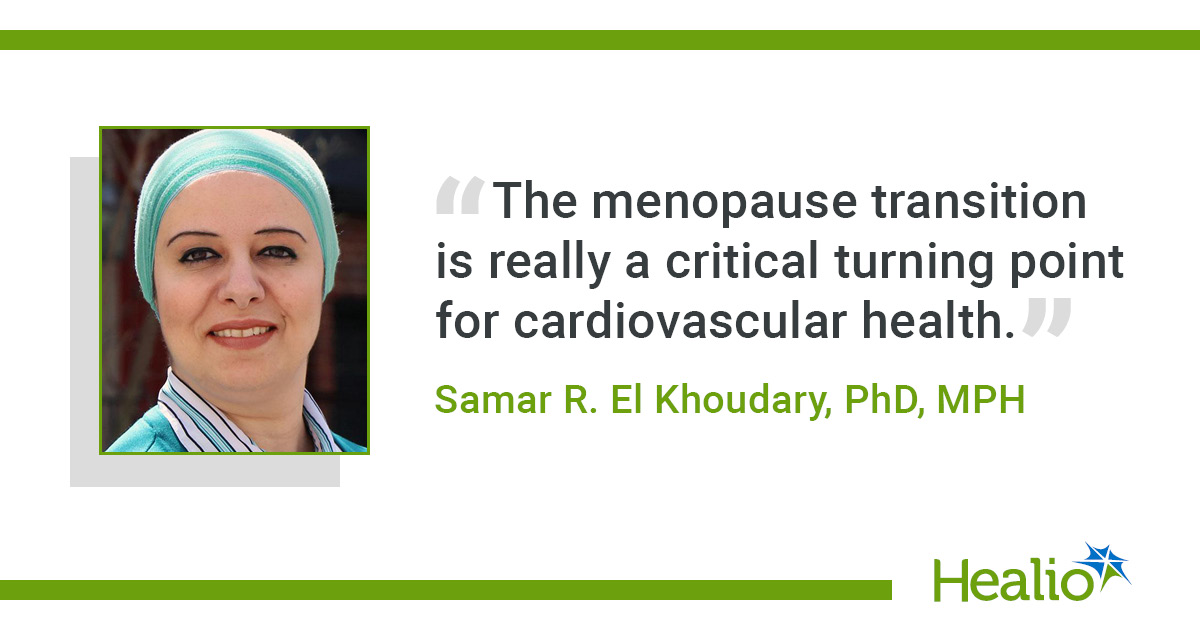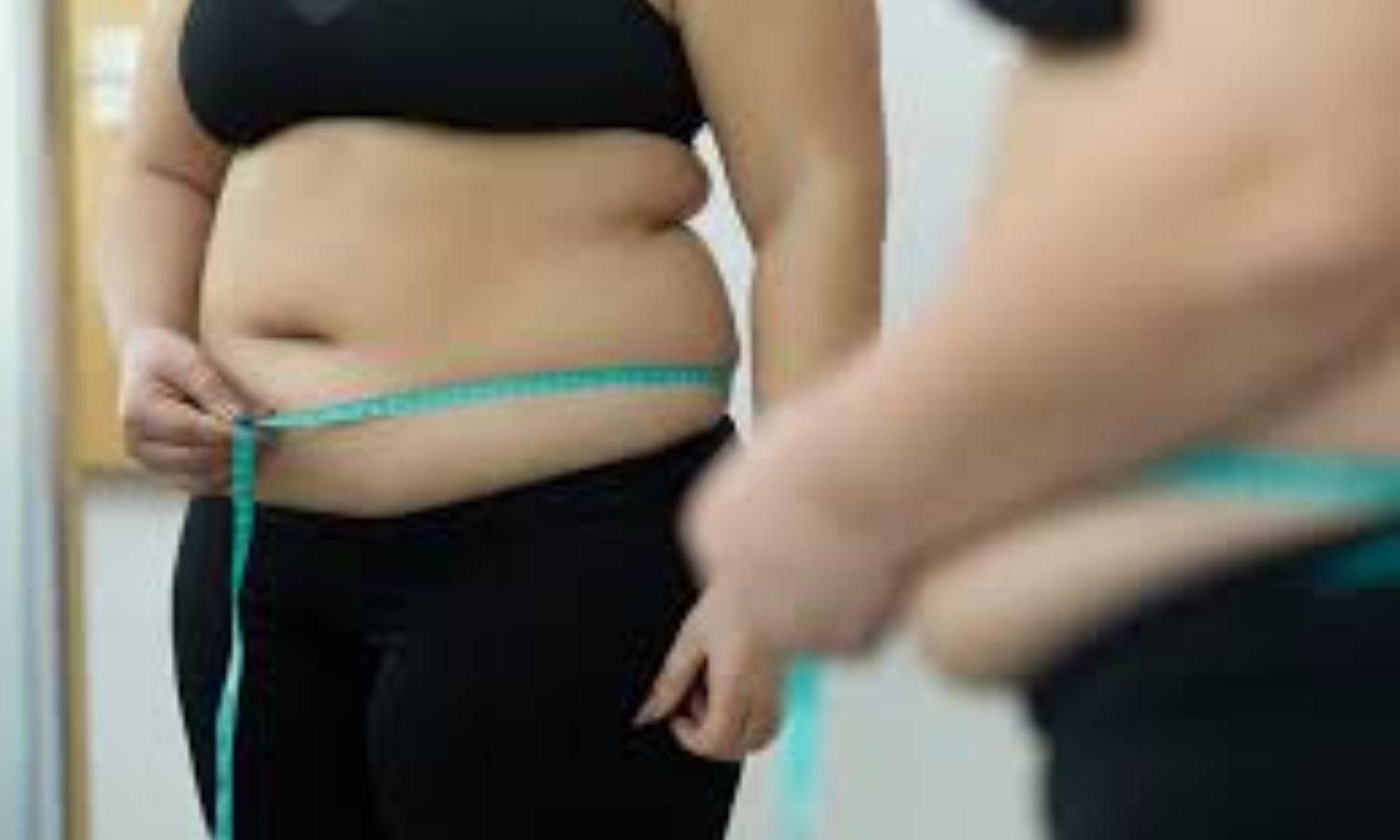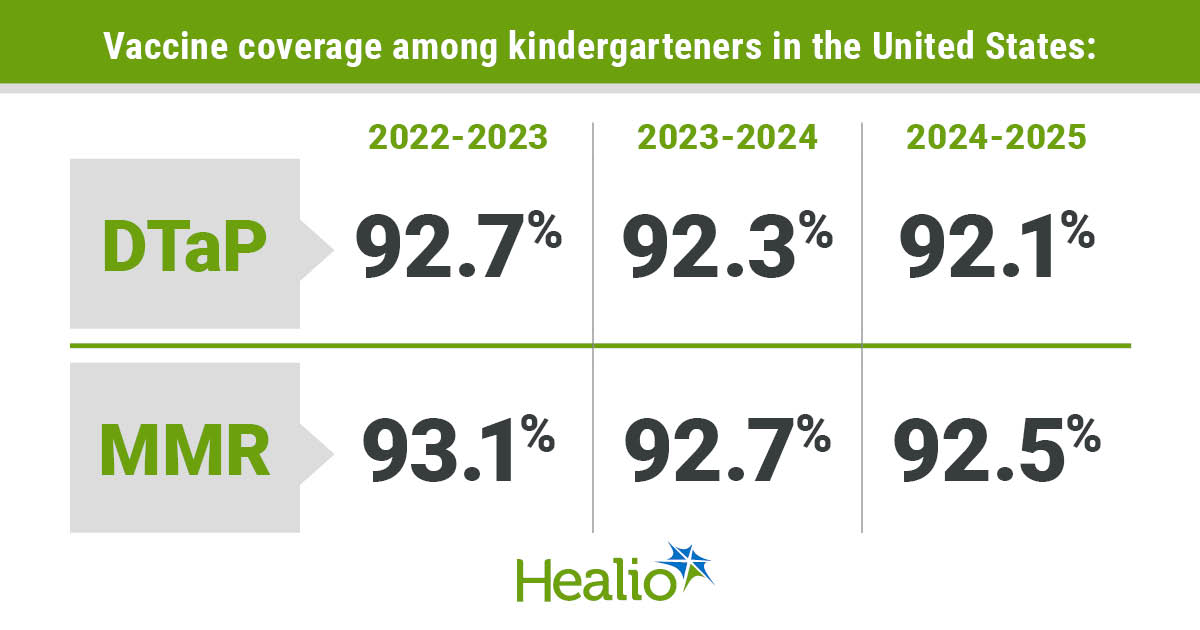August 01, 2025
3 min read
Key takeaways:
- BP, glucose, sleep and nicotine were particularly influential on cardiovascular risk, researchers found.
- The findings show a need for lifestyle and medical interventions in midlife women.
Just over one in five women during menopause had optimal cardiovascular health scores based on the American Heart Association’s Life’s Essential 8, according to a study published in Menopause.
Samar R. El Khoudary, PhD, MPH, a professor of epidemiology at the University of Pittsburgh School of Public Health, told Healio the findings are similar to those seen in the general population.

“Unfortunately, there’s very low prevalence of optimal LE8 scores, and many people still need to do more — including women who are in the menopause transition, which is a vulnerable stage,” El Khoudary said. “That’s easier said than done, of course! There are many barriers to measuring up to Life’s Essential 8. And there is also a lack of awareness. We need to continue to work to address both of those challenges.”
The Life’s Essential 8 (LE8) campaign advises patients to:
- maintain BP;
- eat better;
- be more active;
- quit tobacco use;
- get an adequate amount of sleep;
- manage weight;
- control cholesterol; and
- control blood sugar.
In the current analysis, El Khoudary and colleagues collected data on 2,924 women (mean age, 46 years) who participated in the Study of Women’s Health Across the Nation. They compared the women’s LE8 scores at baseline with “evolving health trajectories over time, from subclinical CVD measures, such as increased carotid-artery thickness, to cardiovascular events, including heart attacks and strokes, to mortality of all causes,” a press release said.
There were 161 deaths and 213 CVD events over a median 19 years of follow-up.
The researchers reported that only 21% of women showed ideal LE8 scores across midlife, with higher scores tied to reduced risks for all outcomes.
Among LE8 components, BP, glucose and nicotine exposure scores that were either favorable at baseline or greatly increased were “generally” tied to lower risks for all outcomes.
A favorable sleep quality score at baseline or a greater increase in this score was also associated with lower risks for CVD events and all-cause mortality but was not tied to carotid artery thickness.
El Khoudary and colleagues said their results “may provide more conservative conclusions in terms of the associations between sleep health alone, and also the total LE8 scores,” because of their use of a multidimensional sleep measure that “reflects a summary of sleep-related issues instead of sleep duration.”
“Overall, our findings should be considered with caution when compared with results from other studies that strictly follow the American Heart Association’s advisory to create LE8 metrics,” they added.
They also acknowledged several study limitations. These included CVD events being self-reported, inclusion bias and unmeasured confounding that “might impact the observed associations.”
“Our work over the course of many years has helped to establish that the menopause transition is really a critical turning point for cardiovascular health,” El Khoudary said. “Many components of LE8 shift during this time, with increases in visceral fat, LDL and BP, as well as restructuring in the carotid artery. And with the symptoms of menopause, sleep can also suffer. So, from midlife on, it is important that women work to counteract all of those changes to protect their cardiovascular health for the long haul.”
Moving forward, El Khoudary said it will be important “to find effective ways to help women adopt healthy habits and stick to them.”
“We need to include women who are in the menopause transition in research that is testing interventions that target glucose, BP, nicotine use and sleep to reduce their long-term risk,” she added.
Reference:
For more information:
Samar R. El Khoudary, PhD, MPH, can be reached through Elaine G. Vitone at vitoneeg@upmc.edu.










